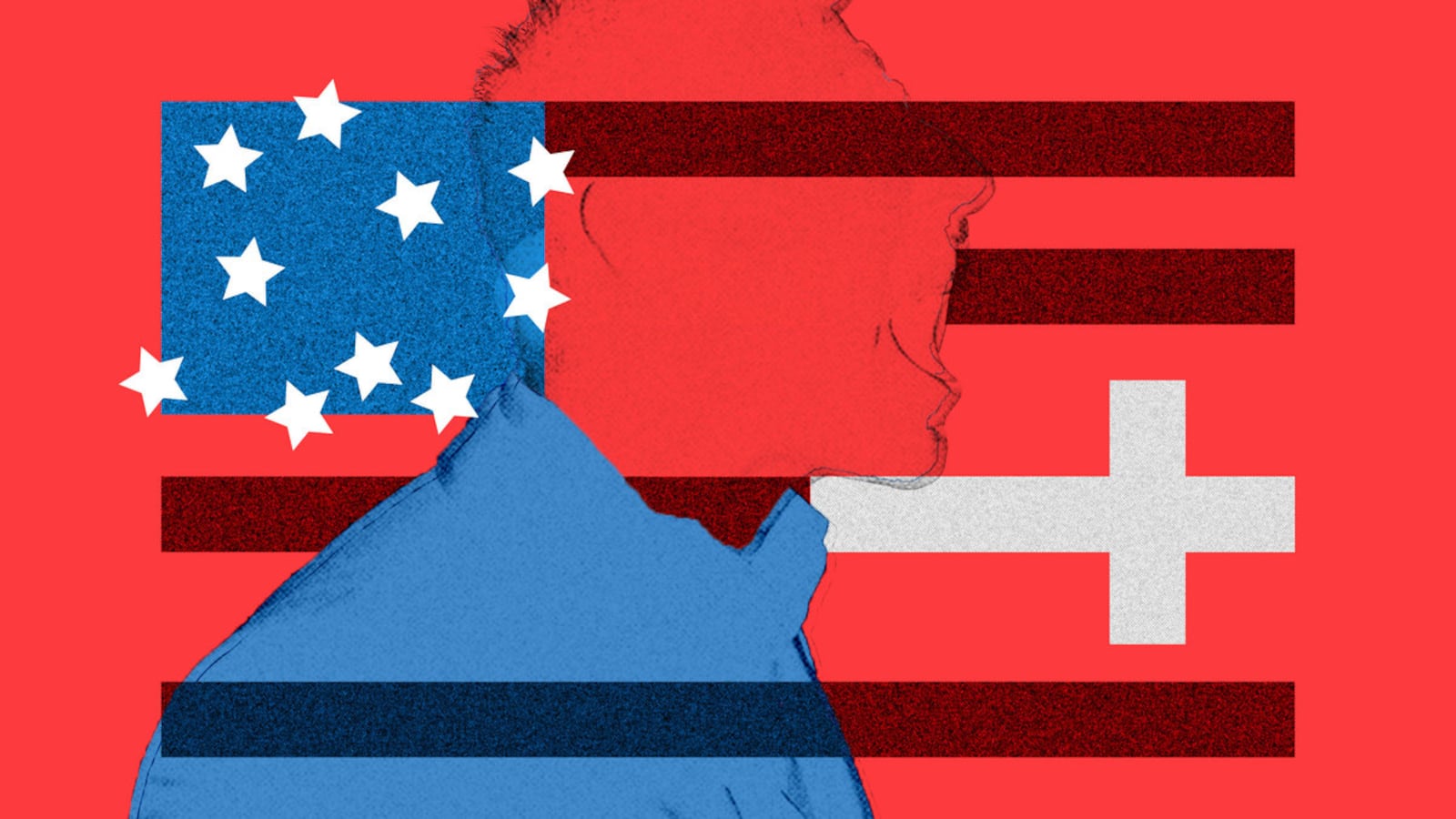Payton Gendron, the 19-year-old white male charged in the May mass shooting at a supermarket in a predominantly Black neighborhood in Buffalo, reportedly left a 180-page manifesto that outlined his motivations:
“Most of all it was to spread awareness to my fellow Whites about the real problems the West is facing, and to encourage further attacks that will eventually start the war that will save the Western world, save the White race and allow for humanity to progress into more advanced civilizations.”
This fever dream is called “the great replacement. It’s the white-supremacist idea that liberal elites are conspiring to replace white Americans through immigration and birth-control policy and that it’s an existential threat to white culture,” says University of Oklahoma sociologist Samuel Perry. “The Buffalo shooter was very wrapped up in the replacement theory, which is the idea that Americans are being replaced by—for him, at least—immigrants. He was obsessed with the declining white birth rate and higher immigrant birth rate as a threat to American culture.”
In their book The Flag and the Cross, Perry and Yale sociologist Philip Gorski use recent survey data to identify a white identity cohort—essentially an ethnic group—hostile to science, reason, pluralism, elections, and other institutions that threaten their perceived place atop American government and culture.
Perry sat down with The Daily Beast to talk about the book.
The repeal of Roe, the Jan. 6 investigation, mass shootings, etc., were all happening as I was reading you describe the white nationalist culture underlying those things. Who are we talking about here?
Nationalism is a belief that the nation is a culturally defined set of people, people “like us.” It’s drawing a circle around people like yourself and defining that as American.
We distinguish white nationalism from Christian nationalism. A white nationalist is someone who believes America is for white people. The Buffalo shooter was explicitly a white nationalist. He defines whiteness in his manifesto in both genetic and cultural terms.
And you distinguish that from Christian nationalism?
A religious nationalist—like a Christian nationalist in the United States—is someone who puts religion at the forefront of their identity of who should have political power and cultural power. They subscribe to the idea that the nation was founded not just by Christians but by Christians like themselves.
We distinguish that from white nationalism because Christian nationalists have a very specific kind of white Christian political and cultural power in mind.
Do you consider white nationalists and Christian nationalists overlapping groups, or is one a subset of the other?
There is a fairly broad overlap between the two groups. There are white nationalists who don’t identify with Christianity, and there are Christian nationalists who are less concerned with whiteness.
It was pretty confounding to me reading the book that there’s a large group of people who identify as Christian nationalists but are not regular churchgoers and don’t know that much about the basic tenets of Christianity.
This is one of the key points we wanted to make in the book. Christian nationalism is an ideology that believes in a deep story of who we are as a people and that the United States was founded on Christian principles and is blessed by God. They believe that America should be shaped by traditionalists with conservative conceptions of what society should be.
Christian nationalists espouse sexual purity, family hierarchy, and who gets preferential treatment. Most Christian nationalists are self-identified Christians; they go to churches, and many of those churches teach a kind of Christian nationalism of God and country.
Other Christian nationalists are not self-identified Christians but endorse that ideology. Why? It’s complicated, but it’s essentially an ethnic identity.
Do you identify the Jan. 6 insurrectionists as a combination of white nationalists and Christian nationalists?
There were certainly people at the Capitol who identified as Christian and came from churches that are not radical, right-wing hate groups. Many of these are devout Christians, but I would not say that it was their devoutness that led them to the Capitol.
The Buffalo shooter says he wasn’t religiously motivated.
He wrote in his manifesto that he’s not a Christian in the sense that he confesses his sins and asked for forgiveness but that he tries to live Christian values and practices. That sounds ludicrous from someone who was about to shoot up a grocery store.
He also writes about how a white person is white genetically and white culturally, and he says that part of white culture is defined by Christian religion. For him, part of what it means to “belong” here is grounded in both whiteness and Christianity.
Do you see an evolution from 1980s skinheads to some of these recent mass shooters?
Hate groups come from different situations. The Buffalo shooter sees himself as someone who defends diversity but believes that those diverse cultures should be in their own countries and not in his country. That’s a very Trumpian approach to nationalism that we should be able to control our own culture in our own country.
In recent years, two straight losses to Barack Obama have radicalized some white conservative Christians to engage in moral reasoning such that they no longer believe in being “values voters,” that the character of leaders matters. It’s about defeating the left and getting Supreme Court justices. Those are the stakes.
I came to the book wondering if these white Christian nationalists had these firm beliefs or if they just nodded yes to whatever Donald Trump said to adopt what he believes. If Trump had pushed masks as a route to take credit for ending the COVID-19 pandemic, Trumpers would be calling them Liberty Masks. Where are you on that?
Political scientists have been able to show for years that the rhetoric of elites powerfully shapes what people believe. Politicians are not just reading the crowd and following the polling. On COVID, if Trump had said “we’re going to unite as Americans and wear the masks and beat the virus,” his supporters would have trusted him.
Trump represents a populist movement on the right that already rejects news media, rejects academic elites, and rejects science, and they’re susceptible to conspiracy theories. Trump leaned into those tendencies in his response to COVID, and his followers went with him. If he had gone a different direction, though, I think his people would still have followed him.
Are immigration, abortion, guns, voter suppression, etc., values that come from population, or do you think those get prioritized by political leaders?
We’ve been able to show with quantitative survey data that Republicans have been moving toward ideological purity over the last few decades. The Republican Party is becoming more conservative, more evangelical, and more Christian nationalist every year.
This is overt now. George W. Bush’s religious rhetoric was cryptic and couched in symbolism. Trump, Ted Cruz, Mike Huckabee, and a lot of copycats like Marjorie Taylor Greene and J.D. Vance are much more interested in stoking populist anger and fear—fear of immigrants, fear of outsiders, fear of Critical Race Theory—with no pretense of using dog-whistle language. The response is aggression, violence, militancy, and support for strongman leaders over institutions.
I wrote a lot about the film and TV business, and there was a massive pushback against a Black female character in Disney+’s Obi-Wan Kenobi. How much of that is about the idea that major characters in big franchises aren’t white by default now as a threat to white people’s place in the culture?
In the 2020 election, the right wasn’t talking about wokeness; they were talking about socialism. Trump was fighting the radical left’s socialist agenda. Now wokeness is the big slur: They are against radical identity politics, which includes any movement toward racial justice.
The last chapter of the book is a warning about how the future and the 2024 election in particular could be worse—possibly a more open attempt to take over or stop vote-counting in battleground states. How screwed do you think we are?
I’m not extremely optimistic given the trajectory we’re on. Candidates like Marjorie Taylor Green are a disaster waiting to happen because they spout angry, vitriolic rhetoric that’s disconnected from facts at their political targets to mobilize populism, and that is entrenching polarization.
Are there historical periods when we came back from this kind of polarization?
The best text on this is How Democracies Die by Steven Levitsky and Daniel Ziblatt—two Harvard professors—who did a comparative study of democracies that either became authoritarian dictatorships or rallied and decided as a country to stand against the move by the populists to take control of the country.
Overcoming populists requires sacrifice. It requires parties to put the country above their own political victories. It takes parties saying this is not the direction we want to go.
Is the end of the Red Scare in the 1950s an example of rejecting populism?
McCarthyism is a very good example of that. It was this hysterical movement, and people eventually stood up to it and denounced it. McCarthy became marginalized. It may take enough Republicans standing up to the populists and representing the country at the risk of losing a primary to diffuse a radical movement.
There is a willingness among Republicans to make it more difficult for certain populations to vote. We’re finding with new polling data that Republicans, conservatives, and ideological Christian nationalists are more willing to change laws to make sure that they don’t lose future elections.
They view a majority as a majority of people like themselves.
Exactly. That’s why replacement theory is such a convenient trope. If you’re in the minority but you feel like the majority doesn’t really count because they’re recruited or illegal or dead people voting, you think it’s a fraudulent election.
You reach a point where you have to cling to conspiracy theories or admit that the vast majority of Americans don’t want what you’re selling.

The Flag and the Cross: White Christian Nationalism and the Threat to American Democracy
The Daily Beast/Oxford University Press







